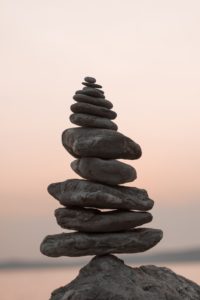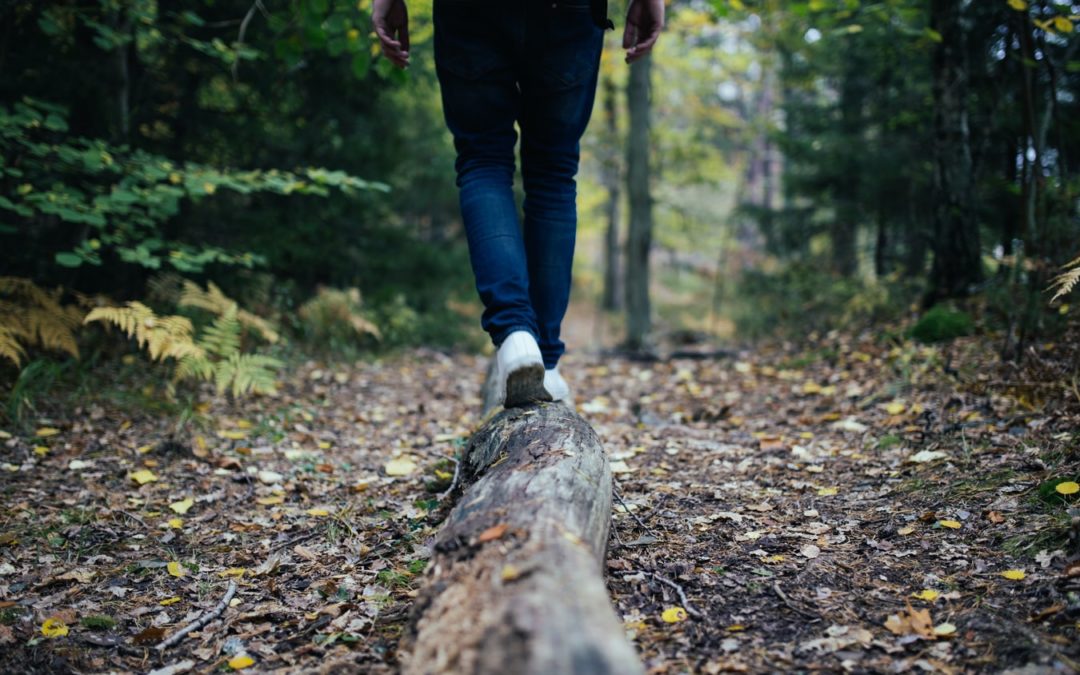I enjoy hiking 14ers here in Colorado. I have the goal of eventually climbing all 58, although I still have a long way to go. One of the interesting things you’ll find once you get above treeline (about 11,000 feet) are rock cairns. These are human-made stacks of stones that are navigational aids. Often the trail is not clear and by following these stacks you’re able to find your way to the summit. I’ve always been impressed that, despite the harsh conditions at that elevation, these stacks will stay in place year after year to help guide hikers.

As humans we all manage a stack of things in our lives – jobs, kids, household, friendships, bills, spouse, vacations, etc.
Some are good things, some are more challenging.
When things are generally good in life, the stack seems a lot like a cairn. Steady and strong despite any storms that may arise. When our stacks begin to include more stressful things like a job loss, health care issues, or relationship troubles our steady stacks begin to resemble a game of Jenga just before the last piece is pulled.
Just like the game, we find that even the littlest disturbance in the smallest piece of our stack shakes every part of our lives. How do we go from having a rock solid life to finding the littlest things upsetting?
Part of the answer is something called Allostasis. Homeostasis refers to processes that stabilize body systems within narrow operating ranges (e.g. body temperature). Allostasis refers to maintaining that stability when the body is experiencing challenges through alterations in the endocrine or neural response. Allostatic Load describes the cumulative effect of stress on our bodies. We are equipped to handle the stress of daily and seasonal routines, however, if the additional load of unpredictable events (e.g. natural disasters, disease outbreaks, social interactions) are superimposed on our day to day stress, the Allostatic Load increases dramatically to what is called Allostatic Overload!
There is a cost from being “stressed out” as our bodies and brains work to adapt to the stress.
Allostatic Overload can predispose us to side effects such as disease, memory impairment, increased fear and anxiety, poorer cognitive function, and general irritability to things that once didn’t seem like a big deal. No wonder our Jenga stacks seem ready to fall!
Unfortunately, neither day to day stress nor unpredictable events are going to go away, so how do we help to stabilize our stack and eventually return it to the rock solid life we once enjoyed?
Just like putting Jenga back in the box, it’s not always easy to make all the pieces fit back together but there are some relatively simple things that can be done to help you to better manage the stress in your life. Although we hear this often, a healthier diet is one way of seeing immediate effects. This includes reducing alcohol use, avoiding too much caffeine, and limiting refined carbohydrates and sugars. Combined with regular physical activity and sleep, your body will be better equipped to handle your allostatic load.

Other ways that you can combat stress are by maintaining a positive attitude and accepting things that are out of your control. One way of keeping a more positive attitude is by improving social connections and seeking support from friends and family. You can also benefit from practicing mindfulness and mediation. Another way is by avoiding busyness and focusing on productivity.
This often includes setting clear limits and boundaries. These can be more challenging to make a regular part of your life but also provide great benefits.
If you’re feeling overwhelmed by stress in your life, your stack seems ready to tip over, and you’d like some help to integrate some of these practices into your life, I would welcome the opportunity to work with you. You can make an appointment for a free 30 minute consultation below.


